by Kenan White | Mar 29, 2012 | Herbs, Life on the Farm, Miscellaneous |

It’s that time of year again. You know, the time of year where everything is dusted with a thick layer of pollen and your nose takes on that itchy-sneezy-runny quality that heralds in the spring weather. For those of us that suffer from allergies, the term “spring fever” has a much more literal connotation, and constantly taking medication to combat these awful symptoms may offer equally unsavory side effects. So, what is an allergic outdoors-lover to do? Well, one of the major symptoms in terms of discomfort is inflammation of the nasal passages, which, in turn, makes it difficult to breathe and causes headaches. Luckily, places like this cannabis dispensary san jose way provide a number of natural anti-inflammatories which can really help to ease this discomfort, which leads me to my next point; the best cure for allergies are those that are natural, and some can even come from your garden! Consider the following herb plants when you begin to sneeze and sniffle this spring:
Eucalyptus: Did you ever use Vapor Rub as a kid, when you were sick and stuffy? Well the naturally mentholated antibacterial oils in Eucalyptus are perfect for unclogging stuffy sinuses. Just boil some water and add a few cups of the minty Silver Drop Eucalyptus, and lower your head over the concoction. You may want to drape a towel over your head to collect as much steam as possible as this will alleviate much of the sinus pressure and congestion. For more information on using Eucalyptus as a natural remedy for allergies, read our previous blog!
Parsley: Chocked full of vitamins and minerals, Parsley is a wonderful antioxidant that will boost your immune system and help your body fight off symptoms from allergies. Because of Parsley’s anti inflammatory abilities, it acts as a natural antihistamine and helps to quell runny noses. The Italian Flat Leaf variety is packed with higher levels of Vitamin C, Iron and antioxidants than its Curly cousin, but making tea with either will soon have you feeling much better!
Chamomile: Just like Parsley, Chamomile contains anti inflammatory benefits which will help clear congestion and prevent your nose from running. When made into a tea, this lovely medicinal herb also has a soothing effect on your body, allowing you to relax and rest which helps your body fight off attacks to its immune system.
These are just a few of the many wonderful healing herbs that we grow that can help cure what ails you. Read through our great list of medicinal herb plants to start curing yourself the natural way!
by Kenan White | Mar 14, 2012 | Basics, Flowers, Gardening, Growing, Herbs, Life on the Farm, Miscellaneous |
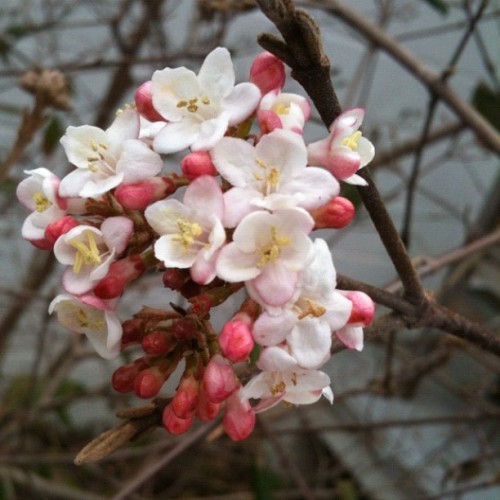
Well it’s definitely safe to say that Spring has sprung. Our forecast here in Virginia (zone 7b) calls for temperatures at or above 68 degrees for the next ten days! But, before I break out the shorts and sandals, here are a few things that still need to be done in the garden before Spring truly takes over:
* Enjoy these warm afternoons by doing a little spring cleaning! Clean and oil your garden gear and make sure to sharpen pruners, shears and shovels for clean cuts in the garden. Cleaning and sharpening your tools will promote a long life for your tools and better health for your plants. Dull blades may mash the stems of your herb plants and flowers, opening the door to disease or decay. Don’t forget to keep all your tools and gardening equipment somewhere safe – small sheds are a great solution if you need more storage space in your garden.
* Finish clearing the gutters, gardens and other nooks and crannies of all lingering Fall leaves. This will be a huge help once April hits and we start to see more rain. Removing debris like old leaves, will allow your rain gutters austin to drain, preventing insect larvae and mold from inhabiting your home. Once you’re up there cleaning the gutters, take a look at your roof to check for any damage it may have gotten over the winter months. Contact the Ace Roofing Company if you see anything that could lead to water damage. After you’ve cleared your gutters, it’s a great time to install a rain barrel to collect the runoff for your garden. It may take longer for some people to completely remove any unwanted debris that is living in your guttering system. Don’t worry, you don’t have to complete this process alone, as there are many companies similar to Clean Pro Gutter Cleaning Atlanta who will be able to make sure that your gutter has been completely cleared so that you are able to install a rain barrel with no other complications. This will be a huge help when rain is scarce, and the natural minerals in the rainwater are much better for your plants. Lastly, be sure to clear all leaves, lingering foliage, or dead plants from your garden to discourage disease and give your Spring plants a fresh start.
*Once you’ve cleaned your gardens, it’s a good time to test and amend your soil. You can find soil test kits at your local hardware store, and if you don’t have a composter, you should pick one of those up while you’re there! Adding two to three inches of organic compost to your garden is a terrific way to boost the nutrients in your soil and give your new garden a great makeover.
*Give your perennial herb plants like Cutting Celery and Italian Flat Leaf Parsley a good pruning to encourage tender spring grow. Are you petrified of pruning? Watch our how-to video, where I show you the proper way to prune Parsley!
*Here in VA, we should be clear of any frosty nights, so you can start planting cool weather crops, like Arugula, and most herbs, especially herbs that bolt during the heat of summer, like Cilantro. If you’re planting herbs that may be more sensitive, like Basil, make sure your night time temperatures will consistently be at or above 50 degrees before planting outside.
by Briscoe White | Feb 10, 2012 | Life on the Farm, Miscellaneous, Seeds, Wildlife |
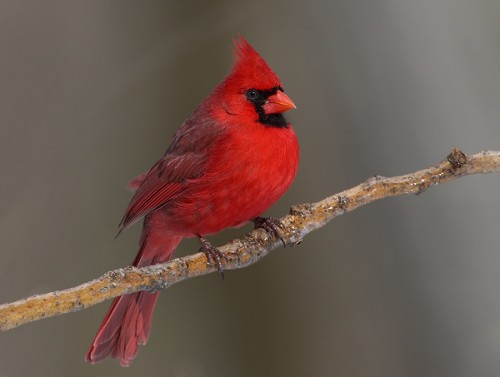
February is National Bird Feeding Month, and though we’ve had a fairly mild winter, here in zone 7, our feathered friends still need your attention. No matter where you reside, the birds in your area could use a helping hand during these cold, dreary months where weather may be harsh or unpredictable and food can be scarce. Here are a few tips to ensure that your bird buddies are well fed and warm until springtime arrives:
Water Through The Winter. Birds need a fresh source of water, so make sure to break and remove any ice that may accumulate in your bird baths, and replenish the water regularly. Our Bamboo themed Mini Oriental Bird Bath makes the perfect compact addition to your garden and gives birds plenty of fresh water to drink and play!
Cleaning is Key. Routinely clean debris from bird baths and old seed from bird feeders to prevent fungus and disease from developing and making the birds sick.
Home Tweet Home. Give your birds plenty of dry, protected places to nest for the winter. Hang birdhouses in areas that are out of the wind and weather to provide a great winter home for birds that don’t migrate. Looking for a cozy country-inspired home for your birds? Our Red Wooden Birdhouse compliments your country garden with a rustic look to give your birds the best place to nest year round!
Treats For Tweets. I have vivid memories of my mother placing halves of too-far gone oranges, apples and pears; mushy bananas, dried nuts and other edible compost out along the snow covered railings of our porch, for the mockingbirds. Songbirds LOVE fruit! Giving your birds additional nutrition keeps their diet balanced while giving them something new to instigate, while giving you a great natural show to watch from indoors.
Feed the Flock. Don’t forget to regularly refill your bird feeders and inspect them for winter damage. Replace cracked or broken feeders as needed with new ones.Our Glass Bamboo Feeder is made of thick, hand-blown glass and brass so it’s sturdy enough to withstand winter’s worst!
Out Smart the Squirrels. Other critters may be competing for food sources during this time of the year. Try to hang your feeders in areas that squirrels can’t get to, or attach guards or cages to keep them from stealing all of your birdseed. Alternatively, you can find the best squirrel proof bird feeder at the Ballachy website to prevent these pesky animals from getting to the bird food.
Select The Right Seed. Suet cakes are a great “hodge podge” of high calorie seeds that come in different varieties to attract specific types of winter birds. Peanuts and Nyger seeds are other high calorie nuts and seeds that will ensure your birds stay plump and warm this winter.
by Briscoe White | Jan 13, 2012 | Life on the Farm, Miscellaneous, Wildlife |
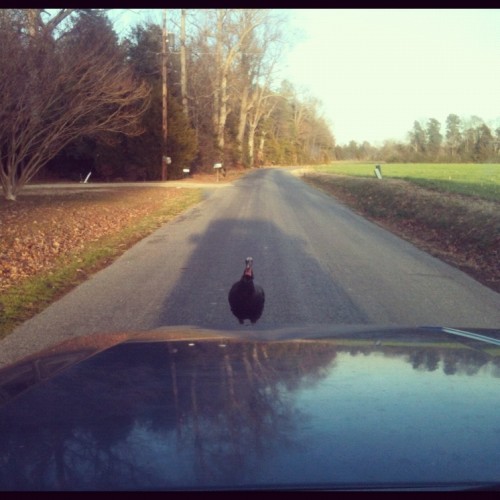
On her way home, our Marketing Director, Caroline, encountered a pretty tough bird. It’s a good thing it didn’t have a flock, or this might have gotten ugly…
There’s one house on the way to the farm, that I always slow to a crawl when I past. The Raniers. In the mornings, their motley crew of dogs, comprised of two labs, one black and one yellow; a stout little beagle, and a bug eyed chihuahua bask in the warm sun in the middle of the one lane country road, or explore the ditches and field adjoining the road’s worn pavement. They’ve become kind of like friends, as I pass them each morning and think “good dogs” to myself and while struggling to get that last drop of coffee out of my travel mug.
The afternoons are a bit of a different story. Replacing my familiar furry friends is a flock of nervous barnyard fowl, ranging from roosters to chickens in various and sundry breeds, and a wild turkey. Yes, I said wild. Apparently, Jamie and Lori, the owners of this tiny ranch, raised this turkey from an egg their son Hunter found. The turkey has grown to assimilate to its much smaller family of chickens without even noticing that its giant stature makes it so different. Now, while I wish no ill will on Hunter’s hand-reared turkey, I do have a particular penchant for dining on wildfowl, especially in the fall – as we all do. I have friends who have invested in a game cam which they have been using to locate and pick out turkeys roaming in the wilderness. Maybe they will let me join them someday; I find that sort of technology interesting and I’d like to see it in use.
On my way home, like any other day, I slowed as I approached the birds while they meandered across the road, scratching and pecking in the dirt that surrounds the blacktop. The only thing different about this encounter was that the turkey stood firmly in the middle of the road, refusing to budge. As I nudged my car closer, it began walking toward me, never breaking its defiant gaze. I finally put the car in park when I realized that I wasn’t going to win this game of “chicken” (pun intended), and stared back. It looked at me as if to say “this is my turf” without caring in the least that I was in a Jeep, and that it was outweighed and out horse powered. I jumped out and shooed it out of the road, and to my surprise as it slightly side stepped my path, it pecked at me! I jumped into my car and looked in the rear view as I began to pull away: the turkey was there. As if from some nightmarish Hitchcock movie, I was now being stalked mercilessly…by an evil turkey. I sped up, and he sped up. It wasn’t until I’d hit almost 25 MPH that he gave up his chase for an easier pursuit.
I got a good laugh from my friends when I told them about my day and my face off with the ornery bird, and still cautiously drive past the Ranier’s in the afternoon, always looking back for fear of that crazy turkey!
by Briscoe White | Jan 4, 2012 | Gardening, Growing, Herbs, Life on the Farm |
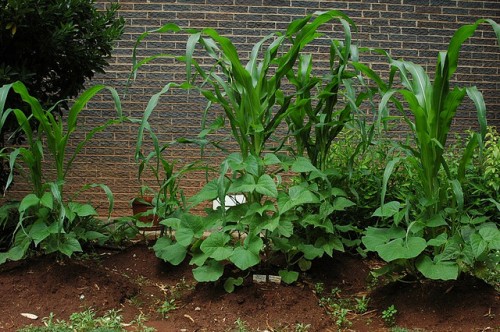
Continuing to think about the New Year and my many resolutions conjures thoughts of good friends and the value of friendship. Just as we appreciate the help of a good friend when we’re feeling weak, your plants have the same needs. Companion planting has always been a fascinating subject to me and the way that certain herbs can protect, encourage and improve the health of their neighbors is really pretty interesting stuff. My second goal for 2012 is to use the science of companion planting more when planning what to grow, for smarter gardening. You have probably heard about The Three Sisters, a companion planting technique devised by Native Americans to efficiently grow corn, beans and squash, by allowing each plant to help the others by sharing their resources. Think about the way plants interact with each other in the garden while you’re planning, and make this concept do the hard work for you this year!
2. Companion Planting
Many of the herbs and flowers that you may already be familiar with have specific qualities that can either encourage or even harm neighboring plants. Companion planting can help prevent pest and insect infestation, attract beneficial pollinators, amend the soil with healthy nutrients and encourage better growth, and break up tough soil so that nearby root systems can dig deeper for more moisture. Plants like Achillea, which adds nutrients to the soil and is commonly called “All Heal” because of its medicinal affect on ailing plants nearby, and Comfrey, a great soil amendment and compost activator that can be made into a nutrient-rich compost tea for fertilizing your plants, make wonderful companion plants because they give back to the garden. Borage and Nasturtiums deter a multitude of crop damaging pests, by attracting predatory insects that prey on these harmful buggers. Herbs like Chamomile, when grown next to other aromatic or culinary herbs, will help increase their oil production, making them more fragrant and flavorful.
By planting smarter, you’ll save yourself lots of work and reap a larger bounty from your garden! For a great diagram and more information on Companion Planting, read our previous blog, Companion Plants Are Friends Til The End! Tune in to Briscoe’s Seeds For Thought tomorrow, for our third and last goal for 2012, Herb Gardening Resolutions, Part 3: Savor The Flavor.
by Briscoe White | Dec 19, 2011 | Inspiration, Life on the Farm, Miscellaneous, Wildlife |
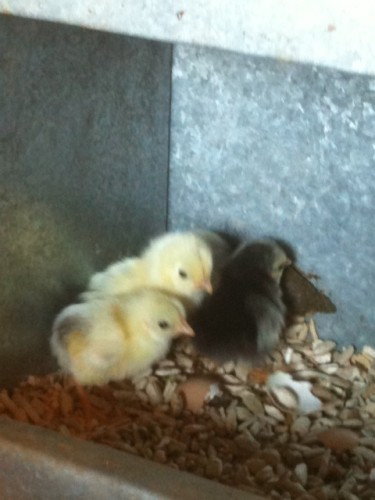
This time of year always feels magical to me- as if anything is possible. You can just feel it in the air- all of the goodwill, warm spirits and excitement- it feels like being a kid again, when everything felt full of wonder. I felt that same wonder when I walked into our chicken coop to gather eggs, and I found seven fuzzy little presents tucked below our two Columbian Rock hens. Though well out of season for hatching chicks, these two white and black hens have been anxiously sharing a nest, a process we call “dumping”. The two laid in the same nest, taking turns keeping the eggs warm. In warmer months when laying is more common, this can actually kill the chicks, as they get too warm with the dual body heat, but since we’ve been getting so cold at night here in zone 7, it was necessary for the chicks’ survival.
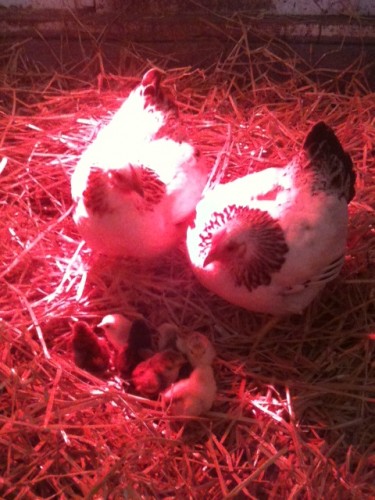
We leave the lights on in the coop at night to reschedule the hens’ natural cycle, encouraging them to lay eggs throughout the winter. When daylight hours begin to shorten, leaving the lights on for longer periods of time will stimulate the hens’ pituitary glands and trick them into continuously laying eggs. This doesn’t harm the chickens, and we get to enjoy fresh eggs all year round! Though this was a man-made miracle, we were still in awe that these little guys had hatched. I guess it was only a matter of time before our plucky little rooster was able to woo these two ladies, resulting in our newest little additions. I guess you just can’t stop nature’s agenda!
We love the Columbian Rocks because of their beautiful markings and small stature. Though we know we should have kept a closer eye on our randy rooster, the chicks will have a warm home in our brood house, which is filled with straw and heat lamps to keep them nice and cozy. Both mothers and the seven chicks are all doing great and enjoying all of the warmth and attention.
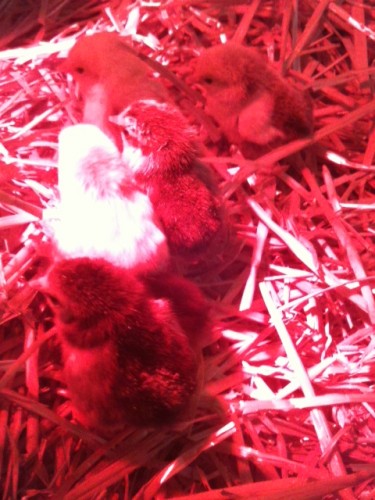
We hope that this season holds all of the awe and wonder for you and yours, that we felt upon finding these little guys this morning. I think that’s one of the best parts of this time of year, the childlike wonder that we all recall that allows us to pause and appreciate family and friends. From all of us to all of you, we hope you have a wonderfully warm holiday season, and keep your eyes open for everyday wonder!








